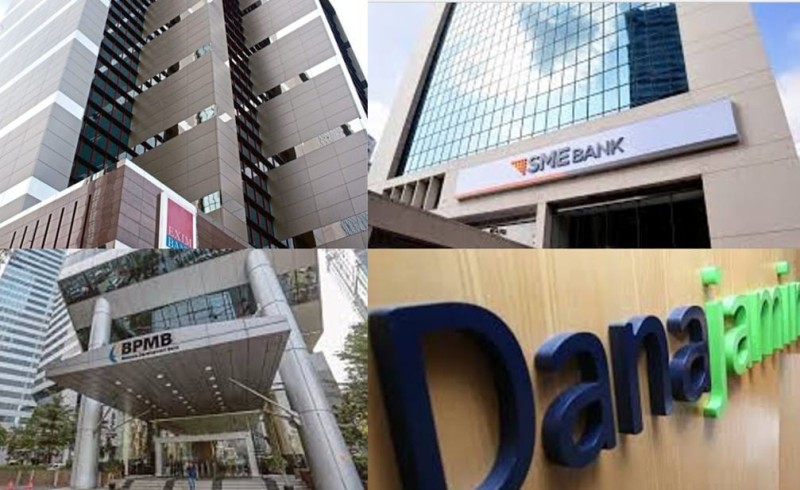
Image credit: Business Today
KUALA LUMPUR: Its a merger that has been in the works for six years now, but experts are hopeful that the merger of development financial institutions Bank Pembangunan Malaysia Bhd, SME Bank Bhd and Exim Bank Malaysia will work to enlarge the financing ecosystem for small and medium enterprises (SMEs), in particular micro SMEs.
"Theoretically, we can see the benefits of the mergers, however practically speaking it is a dynamic and delicate process as it involves huge balancing act to satisfy many stakeholders," Universiti Kuala Lumpur Business School economic analyst Associate Professor Aimi Zulhazmi Abdul Rashid told Business Times.
"From shareholder, employees, customers, vendors, business partners and public at large," he added.
All three banks, while under the purview of the Ministry of Finance and regulated by Bank Negara Malaysia, fall under the supervision of different ministries.
SME Bank is under Ministry of Entrepreneur and Cooperatives Development, while Exim Bank is under the Ministry of Investment, Trade and Industry for its mandate to provide financing to businesses looking to go global.
Aimi said one of the key objective in this merger is to boost or create a bigger ecosystem for Malaysian MSMEs, a very important element in the Malaysian economy, with targeted contribution of 40 per cent to the national gross domestic product.
"Hopefully the merger of the three banks will be able to realise the objective of assisting our MSME locally and nurturing them for international market," he said.
Bank Muamalat Malaysia Bhd chief economist Dr Mohd Afzanizam Abdul Rashid told Business Times the merged entity is expected to offer comprehensive services to their clients, and especially beneficial for MSMEs who seek to export their products abroad.
"Thus far, the share of MSME exports was around 12 per cent in 2023 versus 17 per cent to 18 per cent prior to Covid-19. Hence, the MSME requires further assistance that would accelerate their business expansion and market reach. In this regard, the merged entity would be able to offer wholesome services to their clients and create more value," he added.
Putra Business School economic analyst Associate Prof Dr Ahmed Razman Abdul Latiff told Business Times current weaknesses or inefficiencies in the three institutions are that they tend to focus on bigger SMEs who are looking for a large amount of financing.
"These SMEs are more stable and enable these institutions to achieve their financing key performance indicators (KPIs) faster. It is hoped that when the merger happens, there will be more financing opportunity for smaller MSMEs," he said.
Ahmed Razman suggested specific measures such as ensuring the right set of professionals are chosen to lead the financing department, not allowing politicians on the board of directors and having higher percentage of independent directors on the board.
He also believes that the KPIs for the merged entity should be structured towards impact and outcome rather than output for example, number of loans disbursed.
The restructuring and merger of the three banks was first proposed in 2019 through a two-phase approach.
The first phase was completed in March 2023, when Danajamin Nasional Bhd's business and undertakings were transferred to Bank Pembangunan.
The second phase reportedly was kicked off with the appointment of banking stalwart Datuk Sulaiman Mohd Tahir as its new chairman and independent non-executive director on March 20, 2024.
As at December 31, 2023, Bank Pembangunan made a net profit of RM400.8 million, with RM30.8 billion in total assets.
SME Bank's total assets grew to RM13. 1 billion. By end of 2023, its financing portfolio grew by seven per cent year-on-year, and reached RM8.9 billion.
Total assets for Exim Bank as at end of Dec 31, 2023 stood at RM6.1 billion with total gross loans and financing assets making about 78 per cent of it.
Source: https://www.nst.com.my/business/corporate/2024/12/1145659/experts-hope-enhanced-financing-ecosystem-msmes-merger-3-dfis

